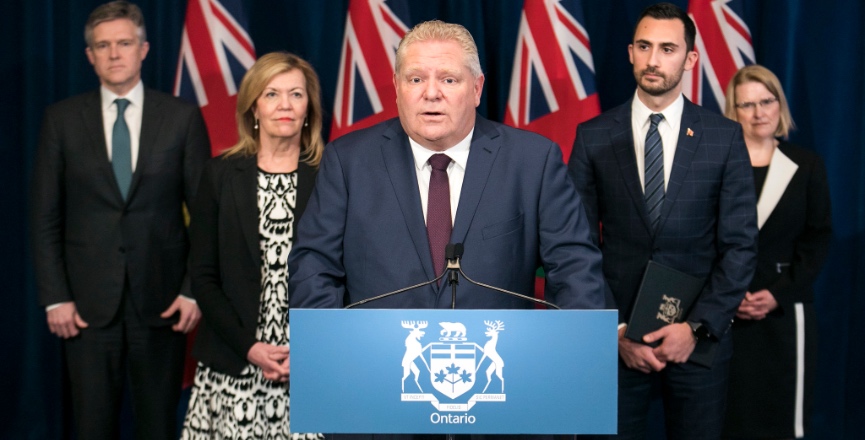As governments in Canadian provinces and U.S. states loosen restrictions designed to slow the spread of COVID-19, not everybody will be rushing back to work.
Don’t expect government agencies and departments to call their white-collar troops back to the office any time soon.
The same goes for other businesses and organizations that have been able to reorganize themselves to work digitally and virtually. They will keep it up and delay returning to the face-to-face work environment as long as possible.
For a good many white-collar professionals, the rule will be safety first.
They and their employers have seen that it is possible to use technology to carry on their activities successfully, while maintaining strict social distancing, and they might not return to their previous, physical offices for quite a while.
They will want to be damned sure that when they open again, they will not run the risk of contracting or spreading a vicious disease for which there is neither a cure nor a vaccine.
It is an entirely different story for the majority of blue-collar and service sector workers.
You cannot clean offices, or sort products in a warehouse, or process meat and poultry, at a safe distance, through a computer in your spare room.
Right now, at this precarious and uncertain stage in the pandemic, it is those workers, in often insecure and low-paid jobs, whom employers and governments want back on the job.
We might not have anywhere near enough testing to know how widespread the coronavirus really is. Experts tend to agree that we have only a rudimentary grasp of the true extent and nature of this new, and still little understood, contagion. As a result, we cannot have any certainty as to how safe it is to resume working in situations where physical distancing is impossible.
The scary case of meat-packing
In essence, with their opening-up plans, many jurisdictions will be running massive, barely controlled experiments. To borrow a phrase from a certain orange-faced U.S. politician, the prevailing attitude among many governments is: “We’ll see what happens.”
The experience of the meat-packing industry is instructive.
As meat and poultry processing operations throughout North American open after brief pauses brought on by huge spikes in COVID-19 cases among their workers, other facilities are forced to close — sometimes for the second or third time — because, despite their notional enhanced safety measures, they still cannot contain the rapid spread of the virus in their workplaces.
A cold plant, full of dead meat and blood, where the nature of the work prevents workers from staying two metres from each other, is, it appears, an ideal environment for this virus.
When the Doug Ford government of Ontario announced that home and office cleaning services would be among those now allowed to resume business, some of their employees commented: “They’re treating us like guinea pigs!”
Epidemiologists concurred. Workers mopping and scrubbing surfaces in multiple buildings will inevitably carry the virus with them, they said. Their advice was that until we test and trace cases to a much greater degree than we do now we will be taking a huge risk in allowing that sort of business to resume.
But the voices of often non-union workers and a few medical experts do not have much sway in the halls of power.
This pandemic, as many others have observed, has exacerbated and amplified class and social divisions here in Canada and more so in the U.S. The poor, Indigenous communities such as the Navajo in the U.S. southwest, and people of colour have been, disproportionately, victims of the disease. Now, the wealthy and powerful are expecting many members of those same groups to buck up, go back to work and get the “economy” — whatever that means (usually somebody’s profits) — moving again.
The NDP MP for Winnipeg Centre, Leah Gazan, pointed out, during a recent rabble.ca online webinar, that, from the outset, a lot of the chatter about COVID-19 has been “very middle class.”
People who have the capacity to stay more-or-less isolated have been sharing stories about learning new bread-baking recipes, sneaking off to their cottages, and binge-watching television mini-series.
That’s not, Gazan said, the experience of her constituents in one of the lowest income ridings in the country. People who are homeless or live in crowded flats and apartments cannot realistically practise social distancing. Some might qualify for one or another of the new suite of government benefits, but many don’t.
While the principal challenge for those who are affluent or comfortably middle-class is inconvenience; Gazan’s constituents’ overwhelming challenge is survival.
When you hear talk about a weariness with quarantine rules — and when politicians, pundits and investment bankers shed crocodile tears for laid-off workers who are experiencing depression and suicidal thoughts — it would be well to remember that those who advocate accepting a certain level of risk in order to reopen the economy are talking about risks for others, not themselves.
Karl Nerenberg has been a journalist and filmmaker for more than 25 years. He is rabble’s politics reporter.
Image: Premier of Ontario Photography/Flickr



